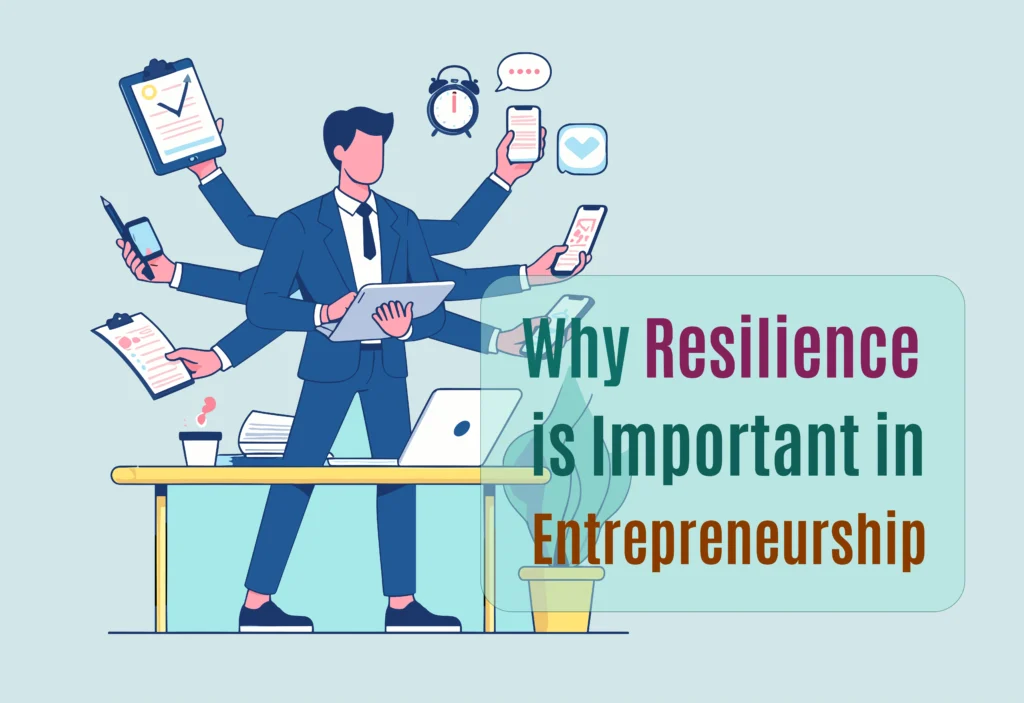What Is an Entrepreneur?
Entrepreneurs are often seen as trailblazers, risk-takers, and innovators who push the boundaries of industries, create jobs, and drive economic growth. However, while the concept of entrepreneurship is widely celebrated, the true meaning and nature of being an entrepreneur can sometimes be misunderstood. Entrepreneurs are more than just business owners; they are problem-solvers, leaders, and visionaries driven by a unique mindset.
In this article, we’ll explore what it truly means to be an entrepreneur, the characteristics that define successful entrepreneurs, the challenges they face, and the vital role they play in today’s economy. Whether you’re an aspiring entrepreneur or simply interested in learning more about the world of entrepreneurship, this blog post provides valuable insights into what it means to take the entrepreneurial leap.

The Core Meaning of an Entrepreneur
Origin of the Term
The word “entrepreneur” originates from the French verb entreprendre, meaning “to undertake.” In the early 18th century, it referred to individuals who took on risks and responsibilities in organizing and managing businesses, particularly those involved in trade and commerce. Over time, the meaning of the term has evolved, and today, it encompasses a broader scope of activities, particularly in the realms of innovation and startups.
Entrepreneurs are not simply those who run businesses; they are individuals who identify opportunities, take calculated risks, and create new products, services, or ways of doing things that disrupt or enhance existing markets.
Modern Definition of an Entrepreneur
In today’s context, an entrepreneur is someone who starts, develops, and manages a business or enterprise with the aim of generating profit while facing inherent risks. Unlike traditional business owners who may operate within established frameworks, entrepreneurs often bring new ideas and innovations to the table. They seek to create value, either by filling a gap in the market or by improving existing solutions.
At its core, entrepreneurship is about innovation, creativity, and the relentless pursuit of opportunities despite the potential for failure. Entrepreneurs are known for their ability to think outside the box, take risks, and persevere through adversity. They are the driving force behind startups, new industries, and groundbreaking technological advancements.
Entrepreneur vs. Business Owner
While all entrepreneurs are business owners, not all business owners are entrepreneurs. A key distinction lies in the focus on innovation and risk. Entrepreneurs are typically characterized by their willingness to take risks in pursuit of disruptive ideas, while traditional business owners may focus more on maintaining and managing an existing business model. Entrepreneurs are often seen as pioneers, pushing the boundaries of what’s possible, whereas business owners might prioritize stability and steady growth.
For example, a person who owns a local coffee shop may not be considered an entrepreneur in the same sense as someone who creates a new app that revolutionizes the coffee-ordering experience. The former is managing an existing business model, while the latter is introducing an innovative solution to the market.
Key Characteristics of Successful Entrepreneurs
Vision and Innovation
One of the most defining traits of an entrepreneur is their ability to envision the future. Successful entrepreneurs are often able to see possibilities where others see limitations. They can identify emerging trends, foresee market needs, and innovate solutions that address unmet demands. This visionary thinking is what separates an entrepreneur from a traditional business manager.
Innovation goes hand in hand with vision. Entrepreneurs thrive on creating new ideas or improving existing ones. Whether it’s developing a new product, streamlining a process, or introducing a disruptive business model, entrepreneurs are constantly pushing the boundaries of what’s possible.
Risk Tolerance and Resilience
Entrepreneurship inherently involves risk. Whether it’s financial risk, market risk, or reputational risk, entrepreneurs must be willing to take bold steps, even in the face of uncertainty. However, it’s not about reckless risk-taking; successful entrepreneurs understand how to assess, manage, and mitigate risks.
Resilience is equally important. The entrepreneurial journey is often filled with challenges, setbacks, and even failures. What distinguishes a successful entrepreneur is their ability to bounce back from adversity. They don’t view failure as the end but rather as an opportunity to learn and grow. Resilient entrepreneurs are able to maintain focus and perseverance, even in the toughest of times.
Passion and Commitment
Entrepreneurs are deeply passionate about what they do. This passion is often the driving force behind their efforts, helping them to stay motivated through the ups and downs of running a business. Unlike employees who may be motivated by external factors such as salary or promotions, entrepreneurs are usually driven by an intrinsic desire to solve a problem, create something meaningful, or make a positive impact.
Commitment is another crucial trait. Successful entrepreneurs are willing to invest significant time, effort, and resources into their ventures. They understand that building a business requires long-term dedication, and they are prepared to make sacrifices to turn their vision into reality.
Adaptability and Flexibility
In an ever-changing market, adaptability is key to entrepreneurial success. Entrepreneurs must be able to pivot their strategies when faced with new challenges or opportunities. Whether it’s adjusting to new technologies, shifting consumer preferences, or regulatory changes, the ability to adapt quickly can be the difference between success and failure.
Flexibility in approach, coupled with a willingness to learn and evolve, allows entrepreneurs to stay ahead of the competition. Being rigid or resistant to change can hinder growth and limit the potential for success.
Types of Entrepreneurs
Small Business Entrepreneurs
Small business entrepreneurs typically focus on local or niche markets, operating businesses that cater to specific customer needs. These businesses often include restaurants, retail shops, and service providers such as plumbers or electricians. While small businesses may not always scale rapidly, they play an important role in local economies by providing jobs and meeting community needs.
These entrepreneurs may not prioritize innovation in the same way as scalable startups but often focus on providing excellent customer service and building strong relationships with their communities.
Scalable Startups
Scalable startups are businesses designed to grow rapidly, often with the potential for global reach. These entrepreneurs typically develop a unique product or service, often leveraging technology, and aim to scale their business quickly. Startups like Uber, Airbnb, and Facebook began as small ventures but rapidly expanded due to their scalability and innovative business models.
These entrepreneurs are typically seeking venture capital funding to fuel their growth and are focused on achieving significant market penetration. They face high risks but also have the potential for high rewards.
≫ Related Post: How to Build a Scalable Business Model for Your Startup
Social Entrepreneurs
Social entrepreneurs focus on creating businesses that address societal, environmental, or cultural issues. Their primary goal is not just to generate profit but to make a positive impact on the world. These ventures may tackle issues such as poverty, healthcare, education, or sustainability.
A prime example of social entrepreneurship is TOMS Shoes, which operates on a “one-for-one” model, donating a pair of shoes for every pair sold. Social entrepreneurs measure their success not just by financial gain but by the value they provide to society.
Serial Entrepreneurs
Serial entrepreneurs are individuals who continually start new businesses, moving from one venture to the next. They thrive on the excitement of launching new projects and often have multiple startups or ventures in various stages of development. Serial entrepreneurs are typically highly creative and risk-tolerant, seeking new challenges and opportunities in different industries.
For these entrepreneurs, the process of building and scaling businesses is just as important, if not more so, than maintaining a single long-term enterprise.
Lifestyle Entrepreneurs
Lifestyle entrepreneurs build businesses that align with their personal interests and desired lifestyle, rather than focusing on rapid growth or high profits. These individuals often prioritize freedom, flexibility, and passion, creating ventures that support their desired way of living.
For example, a digital nomad who builds an online consulting business to work remotely while traveling the world exemplifies a lifestyle entrepreneur. Their goal is to maintain a work-life balance that supports their personal goals rather than pursuing aggressive expansion.
What Drives People to Become Entrepreneurs?
Financial Freedom and Independence
Many entrepreneurs are driven by the desire for financial independence. They seek to break free from the constraints of traditional employment, where salaries and promotions are dictated by someone else. By starting their own business, entrepreneurs take control of their financial destiny, with the potential to build wealth through their own efforts.
Entrepreneurship offers the possibility of limitless financial growth, but it also comes with financial risks. However, for many, the potential rewards far outweigh the risks.
Solving Problems and Creating Value
At the heart of entrepreneurship is the desire to solve problems and create value. Entrepreneurs are often motivated by the challenge of identifying a need or gap in the market and developing a solution that adds value to customers’ lives. Whether it’s creating a new product, improving an existing service, or revolutionizing an industry, entrepreneurs are driven by the impact their work can have.
This desire to create something meaningful is a powerful motivator and is often what keeps entrepreneurs going, even when faced with obstacles.
Desire for Autonomy and Flexibility
Entrepreneurship offers the freedom to be your own boss and make decisions about how you spend your time. For many, the ability to set their own schedule, work on projects they’re passionate about, and have full control over business decisions is a significant draw.
Unlike traditional employment, where you may be bound to a fixed schedule or corporate policies, entrepreneurship provides the flexibility to design a career that fits your personal preferences and lifestyle.
Impact and Legacy
Some entrepreneurs are driven by the desire to leave a lasting impact on the world. They aim to build businesses that not only generate profit but also contribute to society in a meaningful way. This could mean creating products that improve people’s lives, addressing social issues, or leaving a legacy that future generations will remember.
The desire to be remembered for their contributions and to make the world a better place is a strong motivator for many entrepreneurs.
Challenges Faced by Entrepreneurs
Financial Instability and Risk
Entrepreneurship comes with significant financial risks. Entrepreneurs often invest their own money or take on loans to fund their ventures, without the guarantee of success. Many startups struggle with cash flow, especially in the early stages, and the pressure of financial instability can be a heavy burden.
Entrepreneurs must be prepared for periods of uncertainty and develop strong financial management skills to navigate these challenges.
Long Working Hours and Burnout
The entrepreneurial lifestyle is often characterized by long working hours, especially in the startup phase. Entrepreneurs are responsible for every aspect of the business, from product development and marketing to sales and customer service. The demands can lead to burnout if not managed properly.
Finding a balance between work and personal life is a challenge that many entrepreneurs face, but it’s essential for long-term success.
Market Competition and Uncertainty
Entrepreneurs often face fierce competition, especially in crowded markets. Staying ahead of competitors requires constant innovation, adaptability, and an understanding of market trends. Additionally, market conditions can change unexpectedly, introducing new challenges and uncertainties.
Entrepreneurs must be proactive and resilient to navigate these challenges while staying focused on their goals.
Work-Life Balance
For many entrepreneurs, achieving a work-life balance is an ongoing struggle. The demands of running a business can be all-consuming, and it can be difficult to find time for personal activities, relationships, or relaxation. However, neglecting personal well-being can lead to burnout, which ultimately harms both the entrepreneur and the business.
Successful entrepreneurs learn how to manage their time effectively and set boundaries to ensure they maintain a healthy balance between work and personal life.
How Entrepreneurs Contribute to the Economy
Job Creation
One of the most significant contributions entrepreneurs make to the economy is job creation. As they grow their businesses, entrepreneurs hire employees, providing opportunities for others to earn a livelihood. This not only benefits individuals but also strengthens local economies by reducing unemployment.
Small businesses, startups, and scalable companies alike play a crucial role in creating jobs, especially in emerging industries or regions with fewer opportunities.
Innovation and Market Disruption
Entrepreneurs are often the driving force behind innovation. They introduce new products, services, and technologies that disrupt traditional markets and create new industries. Innovations from entrepreneurs such as the smartphone, electric vehicles, and e-commerce platforms have transformed the way people live, work, and interact.
By pushing the boundaries of what’s possible, entrepreneurs drive progress and contribute to economic development.
Economic Growth and Wealth Generation
Entrepreneurial ventures contribute to economic growth by generating revenue, increasing productivity, and fostering competition. As businesses grow, they contribute to the overall wealth of their communities and economies. Successful entrepreneurs not only create wealth for themselves but also for their employees, investors, and partners.
Promoting Social Change
In addition to their economic contributions, many entrepreneurs are focused on creating businesses that address social, environmental, and cultural issues. Social entrepreneurs, in particular, aim to solve pressing global challenges while running sustainable businesses.
By addressing issues such as poverty, education, and environmental sustainability, entrepreneurs play a key role in driving social change and improving the quality of life for communities around the world.
Steps to Becoming an Entrepreneur
Identifying a Market Opportunity
The first step to becoming an entrepreneur is identifying a market need or problem that you can solve. This often involves conducting market research, analyzing consumer behavior, and spotting trends that indicate opportunities for innovation.
Whether you’re developing a new product or improving an existing service, the key is to find an area where you can add value and stand out from competitors.
Developing a Business Idea
Once you’ve identified an opportunity, the next step is developing a business idea. This involves brainstorming potential solutions, refining your ideas, and considering the logistics of turning your vision into reality. Successful entrepreneurs focus on creating viable products or services that meet customer needs.
Creating a Business Plan
A solid business plan is essential for any entrepreneur. It serves as a roadmap, outlining your business goals, target market, marketing strategies, and financial projections. A well-thought-out business plan not only helps guide your business but is also crucial when seeking funding from investors or lenders.
Securing Funding and Resources
To get your business off the ground, you’ll likely need some form of funding. This could come from personal savings, loans, angel investors, venture capital, or crowdfunding. Entrepreneurs must be strategic in securing the resources they need while managing cash flow and minimizing financial risks.
Launching and Scaling the Business
Once you have your idea, plan, and funding in place, it’s time to launch your business. Entrepreneurs must be prepared to manage the day-to-day operations of their business, while also thinking about future growth. As your business begins to succeed, scaling becomes the next challenge, which may involve hiring staff, expanding your market reach, and refining your processes.
The Future of Entrepreneurship
The Impact of Technology and Globalization
Technology is transforming the way entrepreneurs start and run businesses. Digital platforms, automation, and artificial intelligence are enabling new business models and expanding the reach of entrepreneurs globally. With access to global markets, entrepreneurs can scale their businesses faster than ever before.
Globalization also means increased competition, but for those able to leverage technology and innovation, the potential rewards are significant.
The Rise of Social Entrepreneurship
Social entrepreneurship is on the rise, with more entrepreneurs focusing on creating businesses that prioritize social and environmental impact alongside profit. This trend reflects a growing consumer demand for ethical and sustainable products and services, as well as a shift in entrepreneurial values.
Diversity and Inclusion in Entrepreneurship
The future of entrepreneurship is also becoming more diverse. As more women, minorities, and underrepresented groups enter the entrepreneurial space, the landscape is becoming more inclusive, fostering innovation and creativity. This diversity is enriching the global business ecosystem and creating opportunities for more voices and ideas to shape the future.
Conclusion: The Endless Potential of Entrepreneurship
Entrepreneurship is more than just starting a business—it’s about innovation, risk-taking, and the pursuit of creating value. Entrepreneurs play a critical role in driving economic growth, creating jobs, and fostering social change. Whether motivated by financial independence, a passion for solving problems, or the desire to leave a lasting impact, entrepreneurs are the engine of progress in today’s world.
If you’re considering becoming an entrepreneur, remember that the journey will be filled with challenges, but the potential for personal and professional fulfillment is limitless. With the right mindset, resilience, and a clear vision, anyone can take the leap and succeed in the world of entrepreneurship.
















